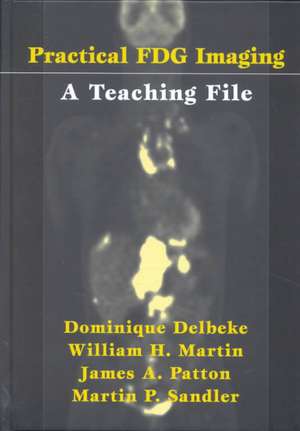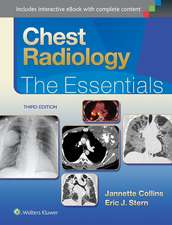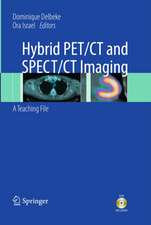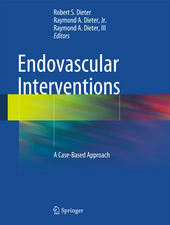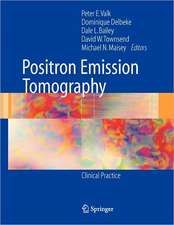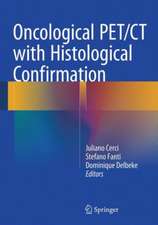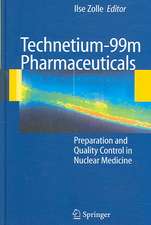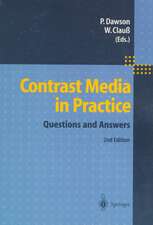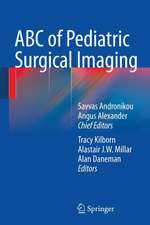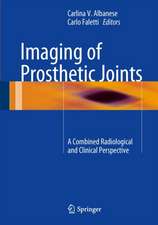Practical FDG Imaging: A Teaching File
Editat de Dominique Delbeke Cuvânt înainte de R.E. Coleman Editat de William H. Martin, James A. Patton, Martin P. Sandleren Limba Engleză Hardback – 10 mai 2002
| Toate formatele și edițiile | Preț | Express |
|---|---|---|
| Paperback (1) | 792.51 lei 6-8 săpt. | |
| Springer – 31 mai 2013 | 792.51 lei 6-8 săpt. | |
| Hardback (1) | 1123.50 lei 6-8 săpt. | |
| Springer – 10 mai 2002 | 1123.50 lei 6-8 săpt. |
Preț: 1123.50 lei
Preț vechi: 1182.64 lei
-5% Nou
Puncte Express: 1685
Preț estimativ în valută:
215.05€ • 233.67$ • 180.76£
215.05€ • 233.67$ • 180.76£
Carte tipărită la comandă
Livrare economică 21 aprilie-05 mai
Preluare comenzi: 021 569.72.76
Specificații
ISBN-13: 9780387952925
ISBN-10: 0387952926
Pagini: 398
Ilustrații: XVII, 398 p. 255 illus., 30 illus. in color.
Dimensiuni: 178 x 254 x 24 mm
Greutate: 1.14 kg
Ediția:2002
Editura: Springer
Colecția Springer
Locul publicării:New York, NY, United States
ISBN-10: 0387952926
Pagini: 398
Ilustrații: XVII, 398 p. 255 illus., 30 illus. in color.
Dimensiuni: 178 x 254 x 24 mm
Greutate: 1.14 kg
Ediția:2002
Editura: Springer
Colecția Springer
Locul publicării:New York, NY, United States
Public țintă
Professional/practitionerCuprins
History of PET.- Physics of PET.- FDG Production and Distribution.- Clinical Applications for the Central Nervous System.- Cardiac Applications of FDG Imaging with PET and SPECT.- Normal Distribution of FDG.- Head and Neck Tumors.- Lung Tumors.- Breast Carcinoma.- Colorectal Carcinoma.- Other Gastrointestinal Tumors.- Genitourinary Tract.- Lymphoma.- Melanoma.- Miscellaneous Tumors.
Recenzii
From the reviews:
"This book is a practical comprehensive reference of cases with FDG images … . international outstanding experts provide the reader with in-depth coverage on all aspects of PET/FDG imaging. … Nuclear medicine physicians, radiologists, oncologists, nuclear medicine residents, radiology residents will all benefit from having this book in their hands as a reference for building confidence in PET images interpretation. The cases are really representative icons for those who need to start learning the indications and interpretations of FDG images." (G. Lucignani, The Quarterly Journal of Nuclear Medicine and Molecular Imaging, Vol. 48 (1), March, 2004)
"This is an excellent introduction and reference book on FDG-PET imaging for the nuclear medicine physician, radiologist, oncologist, neurologist, neurosurgeon and cardiologist. It can be strongly recommended." (Anders Sundin, Acta Radiologica, Vol. 44 (5), 2003)
"The book is unique in several respects. First of all, it is current. Both camera-based and dedicated PET scans and examples as well as normal variants in frequently found imaging artifacts are discussed. The presented cases are of value both to the specialist physician and to the resident in training who needs to learn about indication and interpretation of FDG images. … In summary, the authors have provided an instructive textbook on the use of FDG imaging." (T.J. Vogl, European Radiology, Vol. 13 (6), 2003)
"This is a 398 page hardcover written by … authors, most of whom are well recognized in the PET field. Overall, this is an excellent book, which will suit persons working in the field or those practitioners seeking to supplement their experience. … it comprehensively portrays the spectrum of disorders and pitfalls likely to confront the physician or registrar. The textbook would be a useful addition to the library of all teaching departments as well as those facilities offering a PETservice." (George Larcos, ANZ Nuclear Medicine, Vol. 34 (1), 2003)
"I consider this book a book for physicians – primarily those who are engaged in the management of patients with cancer. … the basic science chapters are practical and concise. It is therefore of value for nuclear medicine physicians and radiologists, and the internist/oncologist will find image correlations which are often unavailable in other literature. For the imaging specialist, the text gives a good idea of which information the referring physician needs to know. A book which I recommend!" (E.K.J. Pauwels, European Journal of Nuclear Medicine and Molecular Imaging, Vol. 29 (11), 2002)
"This book is a practical comprehensive reference of cases with FDG images … . international outstanding experts provide the reader with in-depth coverage on all aspects of PET/FDG imaging. … Nuclear medicine physicians, radiologists, oncologists, nuclear medicine residents, radiology residents will all benefit from having this book in their hands as a reference for building confidence in PET images interpretation. The cases are really representative icons for those who need to start learning the indications and interpretations of FDG images." (G. Lucignani, The Quarterly Journal of Nuclear Medicine and Molecular Imaging, Vol. 48 (1), March, 2004)
"This is an excellent introduction and reference book on FDG-PET imaging for the nuclear medicine physician, radiologist, oncologist, neurologist, neurosurgeon and cardiologist. It can be strongly recommended." (Anders Sundin, Acta Radiologica, Vol. 44 (5), 2003)
"The book is unique in several respects. First of all, it is current. Both camera-based and dedicated PET scans and examples as well as normal variants in frequently found imaging artifacts are discussed. The presented cases are of value both to the specialist physician and to the resident in training who needs to learn about indication and interpretation of FDG images. … In summary, the authors have provided an instructive textbook on the use of FDG imaging." (T.J. Vogl, European Radiology, Vol. 13 (6), 2003)
"This is a 398 page hardcover written by … authors, most of whom are well recognized in the PET field. Overall, this is an excellent book, which will suit persons working in the field or those practitioners seeking to supplement their experience. … it comprehensively portrays the spectrum of disorders and pitfalls likely to confront the physician or registrar. The textbook would be a useful addition to the library of all teaching departments as well as those facilities offering a PETservice." (George Larcos, ANZ Nuclear Medicine, Vol. 34 (1), 2003)
"I consider this book a book for physicians – primarily those who are engaged in the management of patients with cancer. … the basic science chapters are practical and concise. It is therefore of value for nuclear medicine physicians and radiologists, and the internist/oncologist will find image correlations which are often unavailable in other literature. For the imaging specialist, the text gives a good idea of which information the referring physician needs to know. A book which I recommend!" (E.K.J. Pauwels, European Journal of Nuclear Medicine and Molecular Imaging, Vol. 29 (11), 2002)
